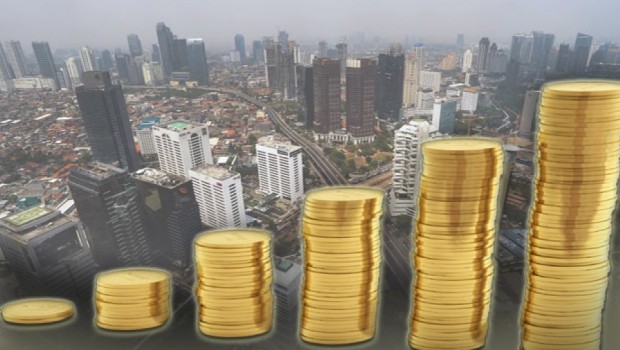
Jakarta, The assumptions in the 2016 Draft State Revenue and Expenditure Budget (RAPBN) are considered highly by economists but are still quite realistic.
Economic Researcher of the Publish What You Pay (PWYP) Institute, Wiko Saputra, provided notes related to the 2016 RAPBN. First, the government needs to take strategic steps to mitigate the impact of the decline in global commodity prices, especially oil and mining.
Second, the development of an economic diversification strategy that does not depend on commodities from the natural resource sector (SDA), in the form of a mining, oil, and gas downstream program that is consistent, rigorous and integrated by providing supporting factors such as electricity.
“The dependence on economic growth based on natural resources, especially oil and gas commodities and mineral and coal, really exacerbates the challenges of global economic turmoil. This situation has been very pronounced this year. The realization of oil and gas PPh revenue in the first semester of 2015 was only Rp. 31.3 trillion, a decrease of 39.5% compared to the same semester of 2014. The government also lowered the PNBP target from oil and gas and general mining in 2015, from Rp 238.25 trillion to Rp. 113.03 trillion. This is the narrowing of the government’s fiscal space, ”he said in Jakarta, Wednesday (19/8).
Similar conditions are also seen in the 2016 Draft State Budget, where the government sets a target of Oil and Gas PPh of IDR 48.46 trillion from the total income tax revenue target of IDR 784 trillion. Meanwhile, PNBP Migas and Minerba is targeted at Rp 125.63 trillion from the total PNBP target of Rp. 280.29 trillion.
“On the other hand, the poor governance of the oil, gas, mineral and coal sectors can also have an impact on development performance and state revenues. For that, on a third note, the government must strengthen transparency and accountability in the governance of the oil and gas and mining sectors, including encouraging company compliance in paying state revenues and taxes to avoid leakage and information asymmetry with the community while still paying attention to environmental protection. This should be done so as not to cause social conflicts, environmental disasters, especially those related to investment, production and downstream programs,” said Wiko.
University of Indonesia economist Berly Martawardaya said that the 2016 RAPBN has reflected economic development, no longer from the middle but from the margins. This can be seen from the reduction in the central government’s expenditure budget through ministries and institutions (K / L), namely from IDR 795.48 trillion in the 2015 APBNP to IDR 780.37 trillion.
On the other hand, regional transfers increased from Rp. 664.60 trillion to Rp. 782.20 trillion, consisting of pure regional transfers of Rp. 735.21 trillion and village funds of Rp. 46.98 trillion.
Meanwhile, according to him, the growth target of 5.8-6.2% is still realistic and must be calculated accumulatively from this year. The government must strongly improve reforms, namely infrastructure, especially electricity outside Java. This will deepen the industrial sector so that dependence on commodity exports is reduced.
Source: http://www.beritasatu.com/ekonomi/300419-ekonom-rapbn-2016-cukup-realistis.html